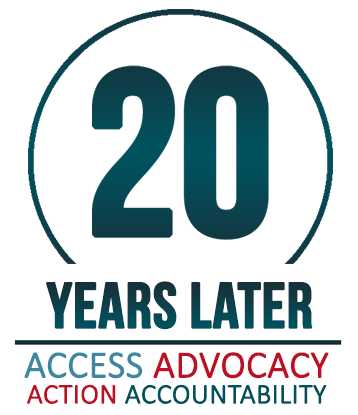Navigating Cancer Survivorship Without a Net: How Far Have We Come and Where Are We Headed?

By Keith Bellizzi, PhD, MPH, Associate Professor, University of Connecticut (photo courtesy of University of Connecticut)
Diagnosed, in 1994, with stage three testicular cancer with metastases to several lymph nodes and both lungs followed by an unrelated diagnosis of kidney cancer three months later, I found myself completely unprepared for the journey I was about to embark on. At the age of 25, while many of my friends were planning weddings, starting families and making career plans, my life came to a sudden halt. I was forced to enter a new world with complex medical terminology, peculiar testing equipment, new faces and relationships, and ultimately having to make treatment decisions that have had lasting consequences.
In the years following my diagnoses, I underwent three surgeries and several rounds of chemotherapy. Just when I thought the worst was behind me, I realized something profoundly frightening at my five year checkup – the ambiguous temporal marker that suggested I was cured. As I waited in the exam room wearing the all too familiar and chastening hospital gown, wondering the results of the latest CAT scan and blood work, my oncologist walked in with what looked like a framed piece of artwork held tightly to his chest. With a smile on his face, he extended his hand and said “congratulations on successfully completing your treatment protocol” as he handed me a framed certificate of completion which closely resembled my college graduation diploma. He proceeded to tell me that “according to the treatment protocol” for your two cancers – as he pointed to a book on a nearby desk, “you no longer need to be followed by an oncologist” and I can go back to my regular primary care physician.
I always imagined this day being marked by happiness and liberation from the clutches of the medical world. As I walked out of the exam room and started down the hall to the waiting room, the nurses lined the hallway with cheers and hugs as I held the diploma in my hand. Now outside the waiting area I paused with a hollow feeling in my gut as if the wind was knocked out of me. I thought NOW WHAT? The place that I came to every six months for reassurance was gone. Despite the feeling of uncertainty and anxiety that accompanied my follow up visits, I took solace in hearing those words “all your tests came back normal” “no sign of recurrence”. Not satisfied with terminating this relationship, I walked back into the oncologist’s office and demanded to see him. I said who is going to reassure me that my cancer hasn’t come back, or what signs or symptoms to look for? What about fertility issues and having children – I am only 25 years old? How do I manage the ever-present neuropathy and Raynaud’s disease from the chemotherapy? Am I at risk for long term effects from my treatment? His response was compassionate and supportive, but in essence the message was “he had few answers”.

Read more posts from our “20 Years Later” series.
Over the last twenty years, great strides have been made to better understand the late health effects of cancer treatment and the importance of continued medical and psychosocial surveillance for survivors once treatment is over. As such, several organizations including the Institute of Medicine (IOM), American Society of Clinical Oncology (ASCO) have called for the development and implementation of survivorship care plans (SCPs) for patients at the conclusion of treatment. Survivorship care plans (include a treatment summary and a follow up care plan) are meant to provide patients with information about their specific cancer, cancer treatment(s), and follow up care plan, including need for checkups, tests, potential long-term health effects of treatment, and, importantly, ideas for improving health and attenuating long term effects. More recently, the American College of Surgeons Commission on Cancer (CoC) has mandated the implementation of SCPs in CoC accredited hospitals. As we begin to phase in SCPs , there are elements/issues that I believe, as well as others, that require special attention.
- We need to be careful to not simply focus on delivering the SCP document to patients and providers and ignore the important dialogue between patient and provider as well as the process of care during survivorship.
- The lack of electronic medical records (EMRs) and relational IT platforms in smaller oncology settings will result in a great deal of manual effort to generate a SCP. Those oncology settings currently using EMRs will need to think about how to leverage electronic medical records and/or modify EMRs to capture critical elements of care plans for automated generation, as well as ease of access by patient, oncologist, and primary care physician.
- Related, how might mobile Apps/technology support not only the SCP (the document), but the process of care, adherence to follow up care recommendations, and assessing the efficacy and cost-effectiveness of SCPs. The latter, of which, we know very little.
- The need for advocacy organizations to lobby for legislation to enable health care providers to bill for generating and delivering survivorship care plans as well as long-term survivorship care.
As CoC accredited hospitals scramble to meet the SCP January 2015 mandate, we need to keep in mind that 80% of patients are seen in the community and these smaller hospitals often lack human capital and infrastructure to provide this care. My concern is that community based hospitals will face numerous challenges, and, ultimately, meeting the CoC mandate may be simply providing a SCP document to survivors and their provider – certainly not the intent of ASCO or the IOM. An important document generally agreed to be important, but hopefully more meaningful and informative than the framed certificate that I received upon completion of treatment which is now stored in a cardboard box somewhere in my basement.
About the Author: Keith Bellizzi, PhD, Cancer survivor and Associate Professor in the Human Development and Family Studies at the University of Connecticut, writes about his experience with cancer nearly 20 years ago and the role of survivorship care plans to assist in managing the late and long-term effects of treatment. The views & opinions expressed in any guest post featured on our site are those of the guest author and do not necessarily reflect the opinions & views of the National Coalition for Cancer Survivorship. Read our blog and comment policies here.




